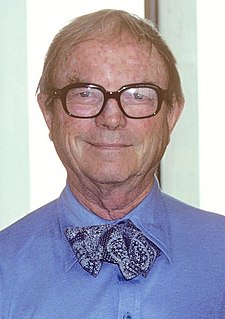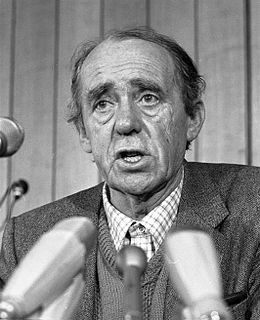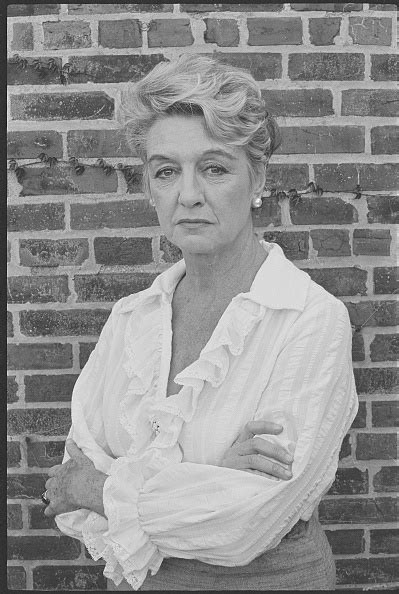A Quote by Brigitte Macron
I have the impression that every word is a word too many. I'm constantly holding myself back.
Quote Topics
Related Quotes
Behind every word a whole world is hidden that must be imagined. Actually, every word has a great burden of memories, not only just of one person but of all mankind. Take a word such as bread, or war; take a word such as chair, or bed or Heaven. Behind every word is a whole world. I'm afraid that most people use words as something to throw away without sensing the burden that lies in a word.
Whenever we remember a series of events, we remember them different. We are constantly changing. It's a flaw, but on the other hand, when we say a word, the meaning is not what you put into it. Rather, the meaning of the word is all of the past usages of that word. Like this cloud that makes up the meaning of the word. It's your subject if you write. For instance what you put in that word and what you assume it means, even its flaw. It has a general agreement.
If the lost word is lost, if the spent word is spent If the unheard, unspoken Word is unspoken, unheard; Still is the spoken word, the Word unheard, The Word without a word, the Word within The world and for the world; And the light shone in the darkness and Against the Word the unstilled world still whirled About the center of the silent Word. Oh my people, what have I done unto thee. Where shall the word be found, where shall the word Resound? Not here, there is not enough silence
We are in love with the word. We are proud of it. The word precedes the formation of the state. The word comes to us from every avatar of early human existence. As writers, we are obliged more than others to keep our lives attached to the primitive power of the word. From India, out of the Vedas, we still hear: On the spoken word, all the gods depend, all beasts and men; in the world live all creatures...The word is the name of the divine world.
I was fascinated by the lack of a word for a parent who has lost a child. We have no word in English. I thought for sure there'd be a word in Irish but there is none. And then I looked in several other languages and could not find one, until I found the word Sh'khol in Hebrew. I'm still not sure why so many languages don't have a word for this sort of bereavement, this shadowing.
I have studiously tried to avoid ever using the word 'madness' to describe my condition. Now and again, the word slips out, but I hate it. 'Madness' is too glamorous a term to convey what happens to most people who are losing their minds. That word is too exciting, too literary, too interesting in its connotations, to convey the boredom, the slowness, the dreariness, the dampness of depression.
The secret of good writing is to strip every sentence to its cleanest components. Every word that serves no function, every long word that could be a short word, every adverb that carries the same meaning that’s already in the verb, every passive construction that leaves the reader unsure of who is doing what—these are the thousand and one adulterants that weaken the strength of a sentence. And they usually occur in proportion to the education and rank.
This word "redemption," what is it about this word? Is it tangible? Do you know when it has happened? Is it necessary in a drama? Does it make a character boring? Does everyone agree on a character being "redeemed?" Or is it a word that is so subjective and polarizing and insignificant in modern television? It is a word that has been given, quite possibly, far too much significance, when it is truly ambiguous and meaningless in a drama. I have personally grown to loathe that word in literature.




































